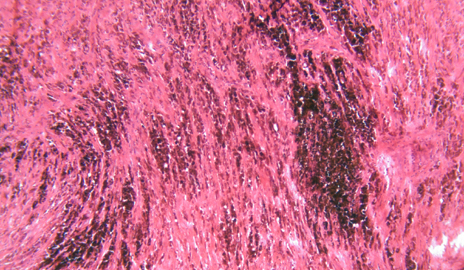Yale Cancer Center researchers have identified a gene in melanoma that can dramatically affect the spread of the disease. The study, published in the journal Cancer Cell, provides new insight into how melanoma metastasizes in patients with advanced disease, and which organs are most likely to be affected. These findings could potentially lead to new drug treatments.
Malignant melanoma is the most deadly form of skin cancer, accounting for 80 percent of all skin cancer deaths. Nearly all melanoma deaths are a result of metastasis, which can occur early in the course of tumor growth in the skin.
The gene beta catenin is mutated in 5 to 10 percent of melanomas, but until now its underlying role in metastasis has been poorly understood. Working with genetically altered mice, the Yale researchers changed the level of beta catenin protein in melanomas. They found that increased beta catenin resulted in increased metastasis, but reduced beta catenin levels nearly eliminated metastasis, and survival was extended.
Their study demonstrated that beta catenin can control melanoma metastasis to the lymph nodes, lungs, intestine, and spleen. “We have been interested in trying to understand the process of metastasis for some time,” said Marcus W. Bosenberg, M.D. associate professor of dermatology and pathology at Yale School of Medicine, and senior author on the study. “We are excited about this new model, as it shows that a gene can enhance metastasis when activated and dramatically reduce metastasis when inactivated. However, there is still much work to be done to see exactly how this happens.”
The authors also found that the effects of beta catenin mutation are strongly dependent on what other mutations were also present. “Our approach has been to develop new models of cancer formation based on the changes seen in human melanoma. In this case, mutation of beta catenin had dramatic effects on metastasis, but only when it occurred along with other mutations that activate the Braf gene, which is involved in cell signaling and growth, and inactivate the Pten gene, which is a tumor suppressor,” Bosenberg explained..
The National Cancer Institute and the Joanna M. Nicolay Melanoma Foundation funded the study. Other Yale authors are William Damsky, Manjula Santhanakrishnan, Lara E. Rosenbaum, James T. Platt, and Yale Cancer Center researchers Bonnie Gould Rothberg, and David L. Rimm.
– By Renee Gaudette
*Source: Yale University

